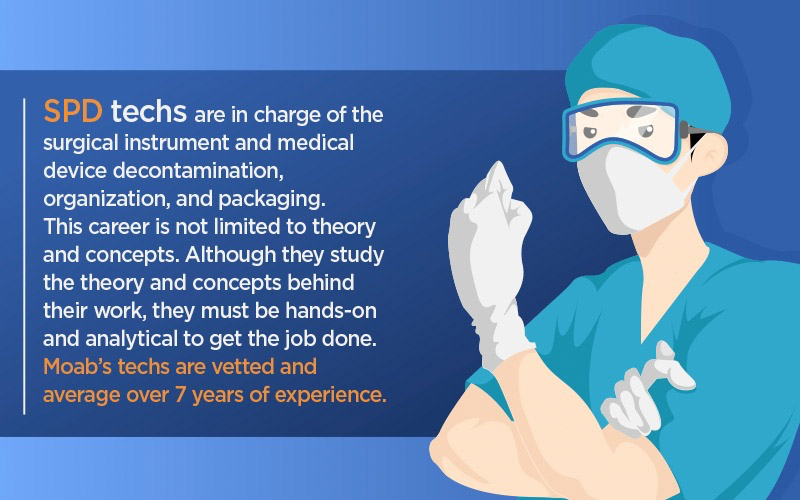SPD Cultural Onboarding: The Edge Your Department is Missing
By Sarah B. Cruz, CSPDT, CRCST, CHL
https://www.linkedin.com/in/sbwcruz/
Starting a job in Central Sterile Services (Sterile Processing), let alone healthcare, is a process! The eight-hour orientation can feel overwhelming and even daunting to some. Although orientation is crucial to onboarding new employees, it can leave a lot to be desired. The ability to relay information in a digestible format is a challenge; even more so with COVID-19 health and safety concerns.
Despite the challenges, it is absolutely vital that all future team members attend this first onboarding phase.
Why? This is the first place our potential anchor employees will hear about their facility’s culture. As you will learn, the word “culture” is quite the buzzword within healthcare. The rigid definition of culture is the ideas and customs of a particular group. Our future job force is greeted with a hospital mission statement that relays the overall tone and conduct of the facility. Add that to the list amongst pre-education, health screenings, insurance options, 401k investment, safety practices, etc. It’s a lot to take on all at once.
Every type of employee goes through orientation. The onboarding process continues in the CS / SPD department, with ‘culture’ left behind in orientation. There are only a number of months to determine if the candidate is a ‘good fit. Can they prove themselves? Can they perform to the standards of the Central Sterile department? They are now tasked with undergoing hard skills training. They must acquire, repeat and improve upon these hands-on, technical skills proficiently. During this time, the typical onboarding process fails who could become your next anchor employees for your hospital.
Managers must remember that these new CS professionals will also use this time to decide if they are going to stay with the company (IE: your department). Hard skills attained through practice and repetition will not keep the new talent in the department. Sure, they are what managers can use to gauge productivity and efficiency. However, these hard skills can also be valued and sought after by different facilities. They too are looking to acquire talented CS technicians. Cultural onboarding will help them choose your sterile processing department. Cultural onboarding is a process in which the department encourages the new employee to become their new team member. This process will define the ideas, values, behaviors, and department goals that technicians ascribe to. Through tangible, well-defined, and articulated processes, your future team member will have a proper introduction to the morals and ethics of the department. This will define your department as a place where their passion will be encouraged and thrive. Cultural AND hard skill onboarding will encourage the team member to prioritize their relationship to the department’s goals. Hard skills are great; however, culture is what provides consistency in standard work.
The pulse and overall department mentality is a representation of its current cultural onboarding process. All team members can benefit from incorporating this new process; from managers to entry-level technicians. They will find that their professional culture is why they continue to do what they do. With physical ways to gauge this development, the intangible becomes quantifiable. By incorporating a cultural onboarding process in your sterile processing department’s onboarding practices, leadership gives themselves the edge they need to create anchor employees. This doesn’t have to happen by chance. They can be developed, encouraged, and benefit our CS department and even the CS industry.


